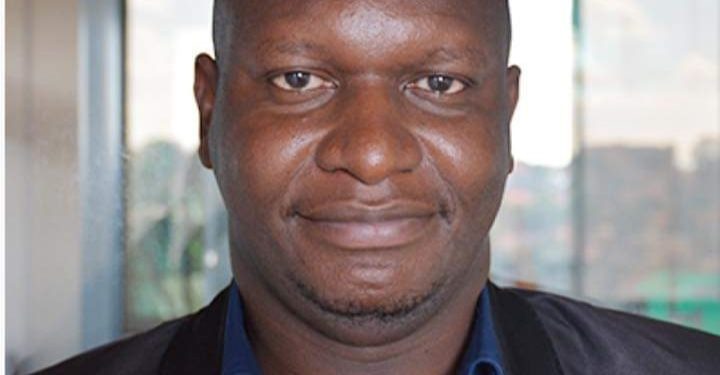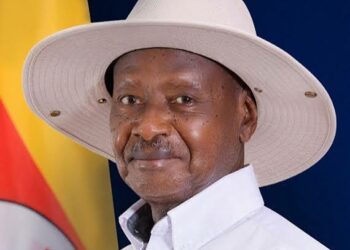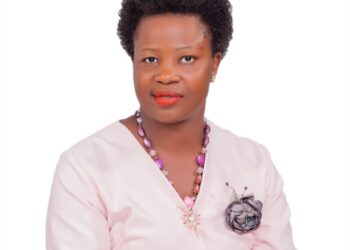I have seen Robert Kyagulanyi’s protest letter to NBS. He describes the election as having been the most fraudulent in Uganda’s history. Perhaps he has information to that effect or it could be his personal view. We await his disclosure of that information during his court submissions. It is his right to protest if he feels aggrieved by a particular media house, the same way President Museveni has protested against NBS before.
It is all part of accountability. The media should be accountable to its publics (including the leaders).
On NBS.
In 2013 I started work with NBS as a consultant. It was an interesting journey and was fun working with a team that wanted to be better than CNN. NBS was struggling at a consistent third position, but was hugely optimistic.
Despite trying so many ideas it stuck broadly at number 3. Then came the General Election of 2016, a year after digital migration which helped NBS to match NTV’s wide coverage to all corners of Uganda. Having decided that its positioning would be current affairs, NBS strategically covered all the candidates almost equally, most often delivered as live breaking news. In the process it gained the trust of viewers across the political divide.
That was the turning point for NBS. It became a platform for all political voices and improved its substance and graphics.
After that election, NBS realized that the winning formula should be to be at the centre, because any ideological leaning to one side would alienate viewers of another side. It worked.
In 2016, I told Kin Kariisa that given how shortsighted we can be, I was glad that he would be longsighted enough to stick to that central position in spite of his (like many others) personal admiration for the president. We do not know the extent to which Kin Kariisa has gone to prevent his personal admiration for President Museveni (who he worked with as a Presidential Assistant on ICT) from influencing the business he acquired while limping and turned around partly by positioning it as an objective platform of current affairs programming. In fact, he has been blasted before by President Museveni live on television. Museveni sometimes thought NBS had been captured by the opposition, the same way he believed CBS and the Daily Monitor were principally mouthpieces of the opposition. The interview Museveni had with Canary Mugume was an outcome of the station trying to make amends with the president.
Then comes the 2021 General Election. As it played out, other members of the opposition accused NBS of supporting Kyagulanyi more than the others, because he was given immense coverage on the campaign trail. I think that Kyagulanyi had more news worthy events going on around him, that eventually defined that coverage. Eventually, I saw NBS making adjustments in response to this criticism, to give more coverage to the others. No one knows how much NBS was spending in fleet costs, bandwidth, facilitation of its journalists (including medical care after they were caught in the police engagements with Kyagulanyi) to cover these candidates. It was a huge cost but NBS stuck to its script.
The biggest problem for NBS before announcing the results came from the commercial bookings by NRM. Unlike other parties, NRM was keen on using the scientific campaign tools to the maximum. And it had the resources to do so. Despite being allegedly dragged to court by NBS for not clearing balances for advertising in 2016, the two parties made up and NBS began running NRM advertising and sponsored coverage.
Initially, it ran extensive coverage of the NRM primaries live on NBS. It then ran President Museveni’s campaign in Kampala and Wakiso, which took over all the evening news bulletins. This was a massive boost for NRM but brought criticism from those who do not support NRM. They felt that NBS had been captured by the ‘regime’ or ‘junta’ as they normally refer to government.
Internet and the results
As it became clearer that internet was going to be switched off, NBS looked for options to keep its live news and general operations functioning. One of the options was to use the government internet services (UTL or NIITA), the other option was to use VSAT (a satellite system for internet) to continue operating. The third was to negotiate with a service provider and seek government clearance to be able to access the internet. I am sure the third option was not used. I do not know which of the first two it used, but it had used VSAT during the Pope’s visit to Uganda. At the station, a media house that enjoys wi-fi that even reaches the roadside, started rationing its internet to only a few computers.
Everyone is asking how NBS got the results to broadcast. Everyone is also asking how the Electoral Commission (EC) was getting the results from the countryside when there was no internet. I was briefed by a reliable source that Electoral Commission was using the government internet services, but never wanted to disclose this because it could not only undermine the government’s PR around the shutdown of the internet, it could also be a target for manipulation by foreign interests. When I sought clarification from another source in government, he said it was unlikely that the Electoral Commission was using government internet, because government agencies were struggling to do business without internet, yet the first source told me all government ministries, departments and agencies (MDAs) were using the government internet services. I then felt that perhaps the Electoral Commission was using phone calls to and from the field to get this data, which is quite easy to do.
All the results NBS was relaying were coming from their field staff at the respective Electoral Commission (EC) tally centres either at district or national level. To be more transparent and avoid conspiracy theories, they should have told the public how they were getting their results to avoid skepticism.
If there is anyone to be spared in this cross-fire between the opposition and the Electoral Commission, it should be NBS. They read results that had been tallied, but they were quick to get them. Those results might have been cooked as the opposition seems to suggest, but from NBS, it was airing the results that had been officially released.
I know that Kyagulanyi probably is convinced he won this election and so looks at NBS as an accomplice of the Electoral Commission’s participation in ‘cooking the results.’ But until that is proven, and even if it is proven, we can argue that NBS was doing a civic duty of updating viewers on the latest results from the official tally centres. Maybe we can also demand to know why other media houses doing the same were shutdown. Why was NBS allowed to air results and how different could those results have been from the ones the others were actually airing. That is not for NBS to answer. That should be answered by the security forces who shut them down.
Do you have a story in your community or an opinion to share with us: Email us at editorial@watchdoguganda.com














